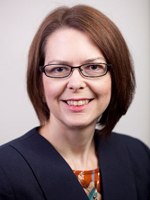非常抱歉,
你要访问的页面不存在,
非常抱歉,
你要访问的页面不存在,
非常抱歉,
你要访问的页面不存在,
验证码:

职称:Professor
所属学校:Indiana University-Bloomington
所属院系:Hutton Honors College
所属专业:Religion/Religious Studies
联系方式:
I am an historian and ethnographer of religion and culture. My particular focus is the United States, understood within the broader frameworks of the Americas and global cultural flows. My first book, The Word in the World: Evangelical Writing, Publishing, and Reading in America, 1789-1880 (University of North Carolina Press, 2004), assesses how evangelicals interacted with the burgeoning print market of the mid-nineteenth century. Studying evangelical print culture alerted me to the significance of “sanctification,” pursuit of holiness or freedom from sin and its consequences—including bodily sickness, as an organizing yet inadequately examined theme in American evangelicalism. As I followed the story forward in time and across space, I discovered the centrality of divine healing practices to the spread of global Pentecostal and Charismatic Christianity in the twentieth and twenty-first centuries. My edited book, Global Pentecostal and Charismatic Healing (Oxford University Press, 2011), reveals that the primary appeal of pentecostalism worldwide is as a religion of healing. Many people claim that prayer has cured them of blindness, deafness, and metastasized cancers. Can, and should, science test such claims? Testing Prayer: Science and Healing (Harvard University Press, 2012) argues that if prayer practices affect health—for better or for worse, for natural or for supernatural reasons—then doctors, patients, and policymakers should all want to know. This book models a multipronged, empirical method for studying prayer practices: comparison of medical records from before and after prayer, surveys of prayer recipients, prospective clinical trials, and multiyear follow-up observations and interviews. As I interviewed Christians about their divine healing practices, some of them surprised me by describing their love for complementary and alternative medicine (CAM). This led me to write The Healing Gods: Complementary and Alternative Medicine in Christian America (Oxford University Press, 2013). People usually ask whether CAM works without asking why it is supposed to work. Many popular CAM practices—such as yoga, chiropractic, acupuncture, Reiki, Therapeutic Touch, meditation, martial arts, homeopathy, and anticancer diets—are premised upon religious theories closely associated with Hinduism, Buddhism, Taoism (Daoism), or Western metaphysics—and lack scientific evidence of efficacy and safety. Yet, CAM entered the American cultural and evangelical Christian mainstreams as people re-categorized practices as non-religious (though generically spiritual) health-care, fitness, or scientific techniques. Holistic health care raises ethical and legal questions of informed consent, consumer protection, and religious establishment at the center of biomedical ethics, tort law, and constitutional law. Healing Gods gets to the heart of values such as personal autonomy, self-determination, religious equality, and religious voluntarism.